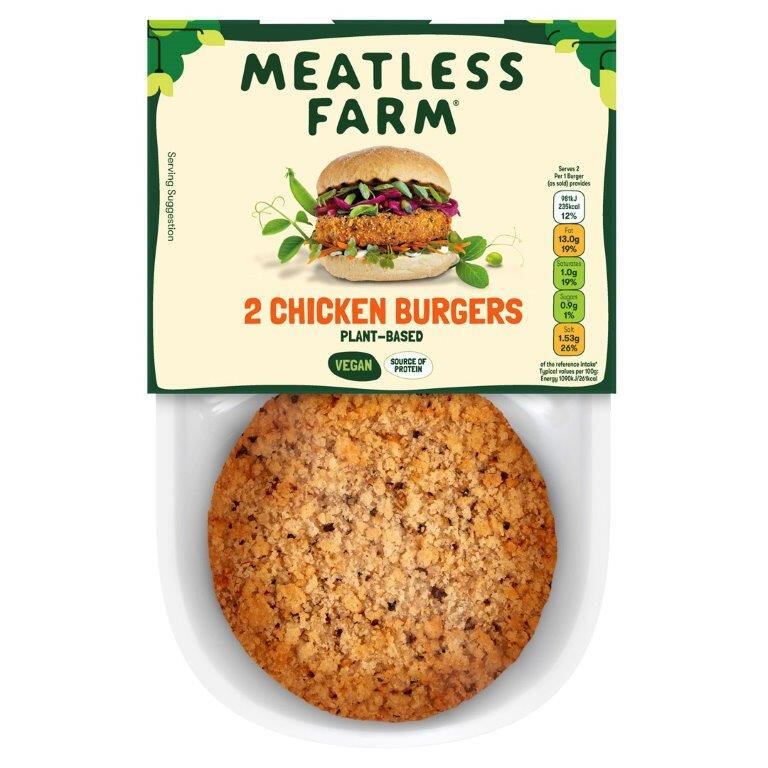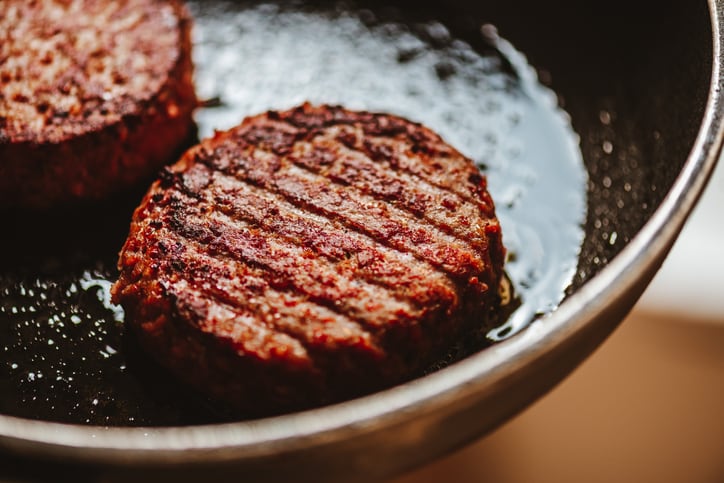Eating plant-based mince, meatballs, sausages, sausage patties and burgers as part of a healthy balanced diet can elicit changes in the gut microbiota consistent with positive health outcomes, according to a new study.
Consuming less meat is increasingly seen as a healthier, more ethical option, leading to growing cohorts of flexitarian consumers looking for plant-based meat alternatives to replace at least some of the animal-based meals they consume. Popular products among flexitarians, however, such as plant-based mince, burgers, sausages and meatballs, are often perceived as low-quality, ultra-processed foods, and is one factor believed to holding back this sector’s development from passing trend into one firmly established in the mainstream.
But a team of researchers argues that the mere industrial processing of ingredients of plant origin does not make these products ultra-processed by default.
They studied the changes to the gut microbiota of a group of 20 participants who replaced several meat-based meals per week with meat alternatives over a period of four weeks. These were supplied by UK-based meat alternative brand Meatless Farm. A control group of 19 participants ate the same baseline diet which included daily meat, eggs and dairy.
The results indicated a positive change in gut bacteria populations among those eating the fake meats.
“The changes we observed in the intervention group were fairly positive,” the study’s lead, Miguel Toribio-Mateas, a researcher based at the School of Applied Sciences at London South Bank University, told FoodNavigator. “On that basis, we consider the changes in the gut microbiota of participants as evidence to support our argument, namely, that consuming PBMA [plant-based meat alternative] products as part of a healthy balanced diet can elicit changes in the gut microbiota consistent with positive health outcomes, as long as the ingredients used to make those PBMAs are of good quality.”
While there are limitations to this study, including the sample size and the fact it relied on 16S rRNA sequencing data alone, he said the findings challenge the notion that the processing of plants in order to create meat alternatives automatically creates products that have a negative impact on human health.
“We disagreed with the suggestion that the mere industrial processing of ingredients of vegetable origin makes the resulting product ultra-processed by default,” said Toribio-Mateas. “UPFs have also been documented for their ability to alter the provision of nutrient substrates to colonic bacteria, due to the fact that refined carbohydrates and sugars are digested in the upper portion of the gastrointestinal tract, so they promote negative changes to both the composition and the metabolic activity of the gut microbiota.”
The study revealed ‘small but statistically significant’ changes in the presence of butyrate-producing bacteria in those eating the meat alternatives. The researchers put this down to these products being rich in polyphenols (compounds found in plants that greatly benefit the human body and help fight disease) as well as fibre (participants in the intervention group increased their weekly fibre intake by an average of 2.7g a day during the four weeks), both substrates that butyrate-producing bacteria are known to thrive on.
The phytonutrients in whole pea, pea flour and pea protein concentrate in the meat alternatives contained phytonutrients such as lutein, genistein, daidzein and ferulic acid, all of which have been reported as modulating agents of the gut microbiome, favouring the growth of short-chain fatty acid -metabolising microbes.
The academics also noted that the products provided to the study contained a range of soluble and insoluble fibres from chicory root, carrot, pea, and potato including hemicellulose, pectin, lignin and cellulose, which have all been found to have a range of benefits to human health.
Butyrate is a waxy molecule that’s produced by some certain gut bacteria in the gut as a result of fibre and polyphenol metabolism, explained Toribio-Mateas.
“In plain English, gut bacteria such as Faecalibacterium, Roseburia or Eubacterium help us digest plant fibres in our food and they produce butyrate in exchange. Apart from providing most of the energy requirements for the cells that line the colon (colonocytes - which use butyrate as a primary source of energy), helping support the health of the thin barrier that separates the gut from the bloodstream.”
This supports gut health and has an ability to promote balanced blood sugar control. Emerging studies also suggest that butyrate is able to travel into the brain, protecting the nervous system as it travels there and having a positive impact on neurological disorders, including anxiety and depression. “The science is still emerging but having a thriving community of butyrate-producing bacteria in your gut is always likely to be good news,” the study lead told us.

The research further revealed a significant decrease in the Tenericutes phylum among the intervention group. Tenericutes are a group of bacteria that have only been reported to change as a result of dietary changes in a handful of studies, explained Toribio-Mateas. “Very little is known about them compared to more mainstream bacterial types that we can regulate via diet changes. What we do know is that the Tenericutes phylum includes microbes that either are confirmed pathogens (e.g. Ureaplasma and Mycoplasma) or that behave in ways akin to parasites. On that basis, we cautiously consider the reduction in Tenericutes in those participants who consumed the PBMAs as a positive result of the study.”
Miguel Toribio-Mateas concluded the findings are very positive for a number of reasons. “The actual changes in microbial composition, with higher joint abundances of butyrate producing microbes and increased butyrate potential are extremely exciting,” he observed.
What’s more, in terms of consumer behaviour, the study challenges the idea that all food processing is detrimental to the nutritional value of products, an idea that has become ‘quite ingrained in many people’s minds’, said the academic. “The results of our study challenged that presumption, and microbes provided us with an objective response. The bottom line is that the quality and nutritional value of the ingredients does not seem to be diminished by the manufacturing process in the case of PBMAs, at least for the manufacturer that kindly donated the products for our study. This means that PBMAs such as those consumed by participants can play a role in supporting gut health as part of a balanced diet, and that those who wish to replace some of their meat-containing meals with PBMAs such as those used in the study are likely to benefit as a result.”
‘More gas than usual’
The participants in the intervention did also report some graphic facts during the study. This included ‘better and more frequent bowel movements, with overall better consistency and, unfortunately, a little more gas than usual’. “In my experience that’s just gut bugs doing their work,” noted Toribio-Mateas.
He added: “Knowing that the occasional replacement of animal produce with PBMAs can support those microbes is also great news for consumers who may feel nervous about the impact of these convenience foods on their health.”
Reference
Impact of Plant-Based Meat Alternatives on the Gut Microbiota of Consumers: A Real-World Study
Foods
Authors: Miguel A. Toribio-Mateas, Adri Bester and Natalia Klimenko
DOI: https://doi.org/10.3390/foods10092040




